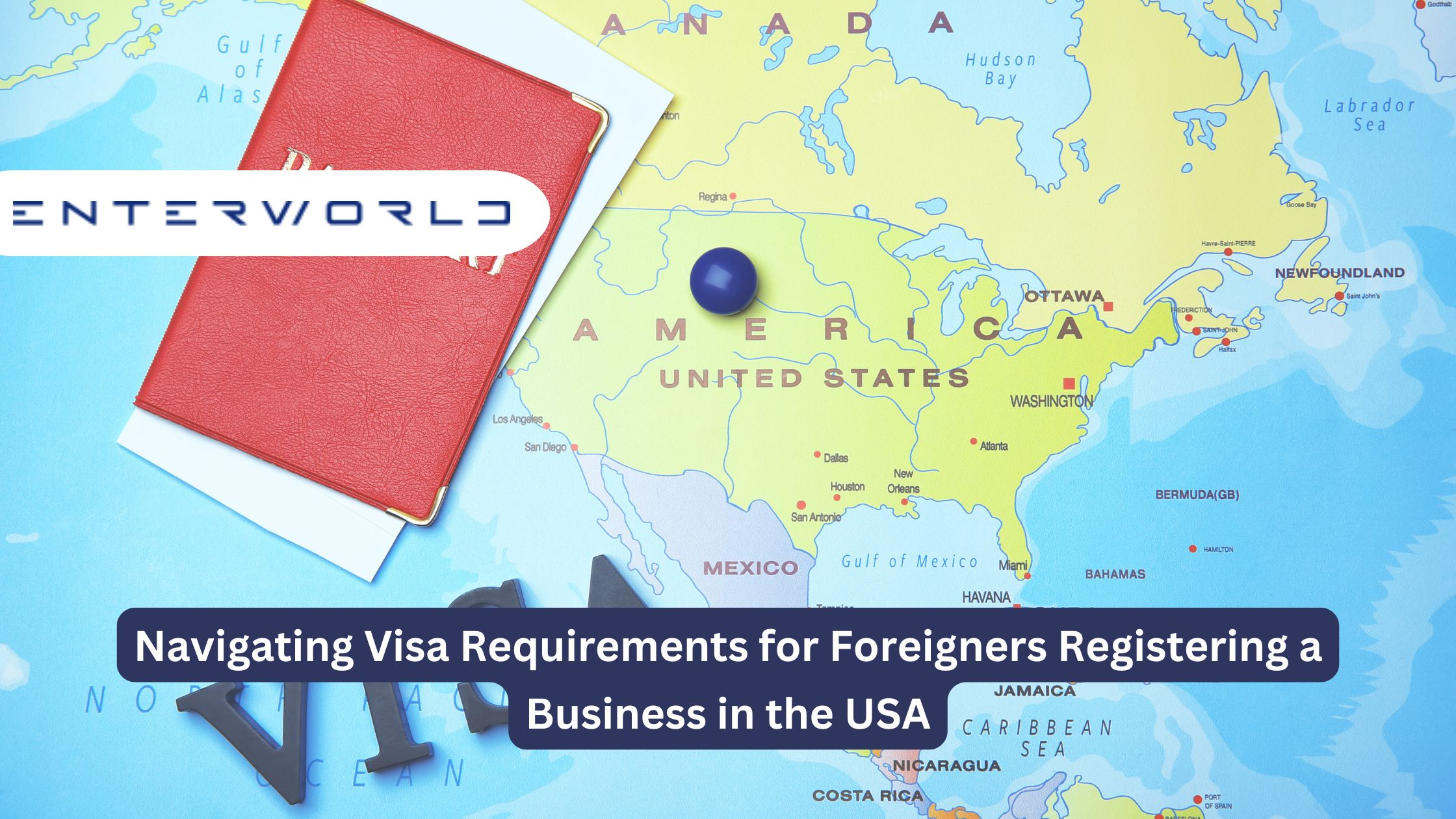Starting a business in the USA is an exciting venture, but for foreign entrepreneurs, the process involves navigating the complexities of immigration laws. Understanding the visa requirements is a crucial part of company registration in USA In this blog, we’ll break down the various visa options available for foreigners and what you need to know to get started.
Why Is a Visa Necessary?
Foreign nationals who wish to register a business in the USA typically need a visa that allows them to live and work in the country. The type of visa depends on factors like the nature of the business, the level of investment, and the applicant's qualifications. It’s important to note that registering a business doesn't automatically grant you the right to live and work in the U.S.; you need a visa to do so legally.
Common Visa Options for Entrepreneurs
-
E-2 Treaty Investor Visa
- The E-2 visa is one of the most popular options for foreign entrepreneurs who wish to invest a substantial amount of capital into a U.S. business. To qualify, the applicant must be from a country that has a treaty with the U.S. and must invest a significant amount of money (usually at least $100,000) in a new or existing business. The E-2 visa allows the holder to live and work in the U.S. as long as the business remains operational.
-
L-1 Intracompany Transferee Visa
- The L-1 visa is designed for individuals who work for an international company and wish to transfer to a U.S. office. This visa is commonly used by foreign companies opening a U.S. branch, subsidiary, or affiliate. To qualify for an L-1 visa, the applicant must have worked for the foreign company for at least one year in the last three years before transferring.
-
EB-5 Immigrant Investor Visa
- The EB-5 visa is an immigrant visa designed for foreign nationals who are willing to invest at least $900,000 (in a targeted employment area) or $1.8 million in a U.S. business that creates jobs for U.S. workers. The EB-5 visa leads to a green card, making it an attractive option for those looking to permanently reside in the U.S.
-
B-1 Business Visitor Visa
- For those who wish to explore business opportunities or attend meetings in the U.S., a B-1 visa may suffice. However, it is important to note that the B-1 visa does not allow you to actively run a business or engage in day-to-day operations. It’s a temporary visa that limits your involvement in the business beyond attending meetings and negotiating contracts.
Understanding the Process
-
Choose the Right Visa
- Selecting the appropriate visa depends on your situation. If you're a small business owner with a moderate investment, the E-2 visa might be ideal. However, if you’re looking to create a large-scale business and are ready to make a significant investment, the EB-5 visa may be the better choice.
-
Prepare Your Business Plan
- A comprehensive business plan is a critical part of the visa application process. Whether applying for an E-2, L-1, or EB-5 visa, you will need to provide a detailed business plan that outlines your business objectives, market analysis, operational strategy, and financial projections.
-
Gather Required Documentation
- Each visa type has specific documentation requirements. Generally, you will need proof of your identity, financial status, and business activities. It is also advisable to consult with an immigration attorney to ensure your application is complete and accurate.
-
Submit Your Application
- Once you’ve prepared the necessary documents, submit your application to the appropriate U.S. consulate or embassy. Processing times can vary depending on the type of visa and the country of origin. Be sure to check the U.S. Department of State's website for up-to-date processing times.
Tips for a Smooth Visa Application Process
-
Consult an Immigration Lawyer: Immigration laws can be tricky, so it’s wise to hire an experienced immigration lawyer who specializes in business visas. They can help you navigate the legalities and ensure that your visa application is submitted correctly.
-
Ensure Proper Investment: For visas like the E-2 or EB-5, ensuring that you meet the required investment thresholds is essential. Failing to demonstrate substantial financial commitment can lead to visa denial.
-
Plan for Delays: Visa processing can take time, so be prepared for delays. Apply well in advance of your intended start date for your business operations.
-
Understand Compliance: Maintaining your visa status is crucial. Failing to comply with the terms of your visa (e.g., running a business on a B-1 visa) can lead to deportation or being barred from entering the U.S. in the future.
Conclusion
While the process of registering a business in the USA as a foreign national can be complex, understanding the visa requirements can make the journey smoother. Whether you choose the E-2, L-1, or EB-5 visa route, proper planning, documentation, and legal support can significantly increase your chances of success. It’s crucial to research the specific visa options available to you and ensure you meet all requirements to avoid delays or complications in your entrepreneurial journey.
